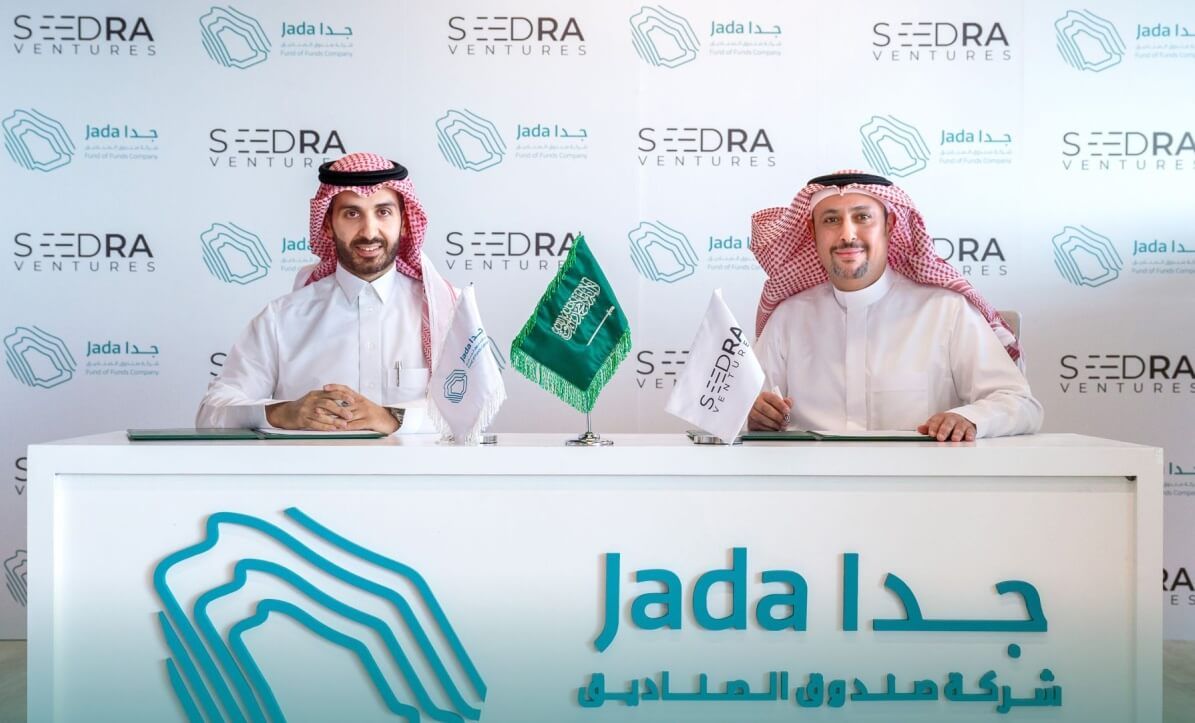RIYADH: International venture capital investors have increased their presence in the Middle East and North Africa region despite a challenging global economic climate, according to a new report by MAGNiTT.
The study highlights significant growth in global participation, with their share of MENA-based startup investments rising from 28 percent in 2020 to 51 percent in 2024.
The global economic climate in recent years has been marked by persistent challenges, including rising inflation, geopolitical tensions, supply chain disruptions, and tightening monetary policies by central banks.
These factors have created a volatile environment for investors, prompting cautious capital deployment and heightened scrutiny of high-risk markets.
In particular, the venture capital landscape has faced headwinds due to declining valuations, slower funding cycles, and a shift toward profitability over rapid growth.
Despite these challenges, regions like MENA, Southeast Asia, and Africa have demonstrated resilience, attracting both local and international capital due to their untapped potential and strategic efforts to foster innovation.
This 23-percentage-point increase underscores MENA’s growing appeal as a destination for venture capital.
The ecosystem continues to be shaped by strong regional investor engagement, driven largely by sovereign wealth fund mandates such as Saudi Arabia’s Saudi Venture Capital Co.
Local investors accounted for 49 percent of the 1,361 unique investors in the region’s startups, with 62 percent of all disclosed capital invested in MENA coming from within the region, MAGNiTT revealed.
However, international interest has surged, with the first nine months of this year marking a 60 percent increase in global investors compared to the previous year.
Philip Bahoshy, CEO of MAGNiTT, attributed the region’s growth to the role of regional Limited Partner programs and high-profile events that spotlight opportunities in emerging markets.
“If you recently attended events like FII in Riyadh, GITEX in Dubai, or Web Summit in Qatar, you would have seen firsthand the growing presence of international investors interested in Emerging Markets. Many of these investors are exploring opportunities but are yet to make substantial commitments,” Bahoshy said.
The UAE has been a standout in the region’s venture growth, with international investor participation climbing from 25 percent in 2020 to 62 percent in 2024, positioning the market as a global hub akin to Singapore.
Saudi Arabia has also seen notable progress, with international investor participation rising from 18 percent in 2020 to 25 percent in 2024, reflecting the Kingdom’s increasing focus on venture capital.
Events such as LEAP and the Future Investment Initiative have played a key role in attracting global attention to Saudi Arabia’s burgeoning venture ecosystem.
In Africa, international development finance institutions have helped foster a growing local investment base.
African investors’ share of total capital deployment increased from 15 percent in 2021 to 35 percent in 2024. This upward trend reflects efforts to strengthen regional ecosystems while still leveraging international expertise.
Internationally, US-based firms such as 500 Global and Y Combinator emerged as the most active of these investors across MENA, Africa, and Southeast Asia between 2020 and 2024.
The influence of American venture capital remains dominant, with US investors topping deal counts in all three regions. However, Southeast Asia attracted the largest capital deployment, with $11.65 billion invested by top international players, compared to $1.177 billion in Africa and $947 million in MENA.
Saudi Arabia-based EdfaPay secures $5m to scale tap-to-pay solution
Fintech startup EdfaPay has closed a $5 million pre-Series A funding round led by OmanTel Innovation Labs, with participation from Aljabr MENA and Waad Investment.
Founded in 2022 by Ghormallah Al-Ghamdi and Nedal Sabbah, EdfaPay offers a tap-to-pay solution that allows small and medium-sized enterprises to use smartphones as point-of-sale devices.
The funding will be used to strengthen the company’s market position in Saudi Arabia and expand its footprint across the MENA region and Pakistan.
The startup previously raised $1.6 million in a pre-seed round in early 2022 and has since entered several new markets, including Tunisia and Morocco.
Social networking app Bubbl raises $350k pre-seed
Saudi social networking platform Bubbl has raised $350,000 in a pre-seed funding round led by angel investor Abdullah Al-Dosari.
Launched in 2024 by Aya Al-Hammoud, the app has already attracted 60,000 daily active users.
The funds will support Bubbl’s plans to scale its user base, with a goal of reaching 1 million daily active users in the near future.

The Public Investment Fund’s Jada Funds of Funds has announced a commitment to invest in SEEDRA Ventures Fund II. (Supplied)
PIF’s Jada commits investment in SEEDRA Ventures Fund II
The Public Investment Fund’s Jada Funds of Funds has announced a commitment to invest in SEEDRA Ventures Fund II, a newly launched venture capital fund managed by SEEDRA Ventures.
The fund aims to invest in early-stage startups with a sector agnostic approach, which coincides with Jada’s strategy.
Bandr Al-Homaly, managing director and CEO of Jada, said: “Our commitment to SEEDRA Ventures Fund II underscores our focus on enabling early-stage businesses that contribute to the Kingdom’s economic transformation in alignment with Vision 2030.”
EFG Hermes launches $300m Saudi education fund
EFG Hermes’s private equity arm has unveiled a $300-million Saudi Education Fund to develop a world-class K-12 operator in Saudi Arabia.
The fund seeks to capitalize on the growing demand for private education, fueled by an expanding student population.
SEF will also acquire a portfolio of international schools in Saudi Arabia, the UAE, and Bahrain, currently managed by GFH under the Britus Education brand.
Amenli secures $2.3m to expand insurtech offerings
Egypt-based insurance tech company Amenli has closed a $2.3 million funding round led by the European Bank for Reconstruction and Development’s Venture Capital arm, with additional participation from Y Combinator.
Founded in 2020 by Adham Nauman, Omar Ezz El-Din, and Shady El-Tohfa, Amenli provides accessible insurance solutions tailored for individuals, families, and SMEs.
The funding will support technology upgrades, product innovation, and market expansion.
Qara raises $2.6m to advance supply chain traceability
Supply chain startup Qara, based in Egypt, has raised $2.6 million from undisclosed investors to fuel its expansion.
Founded in 2021 by Hassan Abouzeed and Khaled Hassan, Qara provides a digital platform enabling product authentication and full traceability for producers.
The company, already active in Egypt, Saudi Arabia, and Kenya, plans to use the funding to expand further into Saudi Arabia under the National Technology Development Programme’s Relocate Initiative.
Logistics startup Locad secures $9m for global growth
Singapore-based logistics platform Locad has raised $9 million in a pre-series B funding round co-led by Global Ventures and Reefknot Investments.
Other participants included Sumitomo Equity Ventures and existing investors such as Antler Elevate and Febe Ventures.
Founded in 2020 by Constantin Robertz, Jannis Dargel, and Shrey Jain, Locad provides a cloud-based logistics engine that helps e-commerce businesses optimize their supply chains.
The funds will support Locad’s international expansion, with a focus on launching in the UAE and Saudi Arabia by the end of 2024.

Egypt-based furniture and home decor e-commerce platform ariika has raised $3 million in a series A extension round. (Supplied)
Furniture e-commerce platform ariika secures $3m to expand
Egypt-based furniture and home decor e-commerce platform ariika has raised $3 million in a series A extension round led by Beltone Venture Capital and Citadel International Holdings.
Founded in 2016 by Khaled Attallah and Shahir Arslan, ariika collaborates with artisans worldwide to design and curate modern home décor products.
Having recently launched in Iraq, ariika plans to enter the Saudi market by January 2025. This follows a previous series A round in which Beltone acquired a 20 percent equity stake.



























